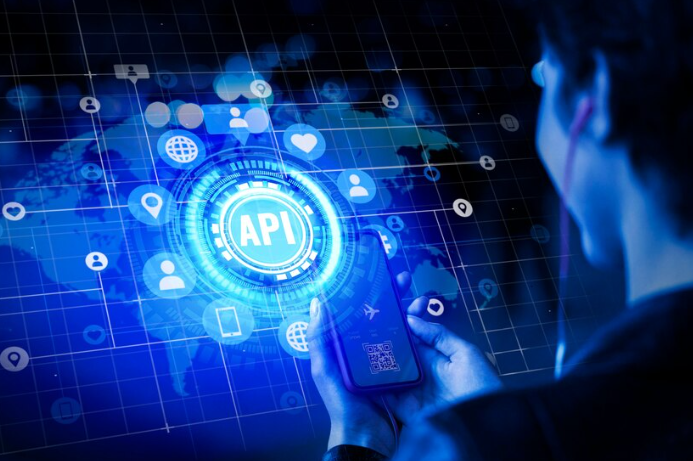The Future of DApp Development and Key Trends Every Business Should Pay Attention To
 Olivia Anne
Olivia Anne
In the ever-evolving world of technology, decentralized applications, or dApps, have emerged as a disruptive force, redefining how businesses operate and interact with their users. But what does the future hold for dApp development? Are businesses prepared to adapt to this new wave of decentralized technology, or are they lagging behind? This article delves into the future of dApp development, shedding light on the key trends every business should pay attention to.
What are the potential challenges and opportunities? How can businesses harness the full potential of dApps to gain a competitive edge? Let’s explore these questions and more as we uncover the roadmap to the future of decentralized applications.
The Growing Importance of dApps in Business
The concept of dApps has been around for a while, but their potential has only recently begun to gain mainstream recognition. Unlike traditional applications that run on centralized servers, dApps operate on blockchain networks, providing enhanced security, transparency, and user control. This decentralized approach allows businesses to create applications that are resilient to data breaches, manipulation, and downtime.
The future of dApp development is driven by the increasing demand for decentralization. As more businesses look for ways to streamline their processes and reduce reliance on intermediaries, the shift toward decentralized systems is becoming inevitable. Moreover, dApps empower users by offering them complete control over their data and transactions, building trust in the long term.
Will your business embrace this transformation? Many industries, from finance to supply chain management, are already integrating dApps into their core operations. The question is not if, but when businesses across all sectors will fully adopt decentralized technologies.
Key Trends Shaping the Future of dApp Development
The future of dApp development is not just about decentralized applications replacing their centralized counterparts. It’s about how these new systems evolve to offer innovative solutions that meet the needs of modern businesses. Below are key trends shaping the future of dApp development.
a. Interoperability Across Blockchain Networks
One of the biggest limitations of dApps today is their reliance on specific blockchain networks, such as Ethereum or Binance Smart Chain. As businesses start adopting blockchain technology, the need for seamless communication between different networks becomes crucial. This is where interoperability comes into play. The future of dApp development will focus heavily on cross-chain solutions that allow dApps to operate across multiple blockchains.
By improving interoperability, businesses can reduce dependency on a single network and enhance the flexibility of their operations. This trend not only ensures better scalability but also opens up opportunities for collaboration between blockchain ecosystems.
b. DeFi Integration with dApps
Decentralized Finance (DeFi) has become one of the fastest-growing sectors in the blockchain space, and its integration with dApps is inevitable. As dApps evolve, DeFi applications will become an integral part of the landscape, allowing businesses to offer decentralized lending, borrowing, and trading services.
The future of dApp development will witness businesses incorporating DeFi protocols to offer innovative financial products. Companies looking to leverage DeFi within their dApps can position themselves as leaders in this space, attracting users who are seeking alternatives to traditional finance.
c. Enhanced User Experience and Interface
One major obstacle to widespread dApp adoption has been the complexity of user interfaces and the steep learning curve for non-technical users. However, as dApp technology advances, we can expect significant improvements in user experience (UX) and interface design. Developers are already focusing on creating intuitive, user-friendly interfaces that resemble traditional apps, making it easier for the average user to navigate dApps.
For businesses, this means a more seamless transition to decentralized applications, as users will be more inclined to adopt dApps when the user experience is smoother and more intuitive. The future of dApp development will prioritize simplicity and accessibility, which is key to driving mass adoption.
The Role of Monetization in dApp Development
When discussing the future of dApp development, monetization is a critical component that cannot be overlooked. One of the primary questions businesses have when considering dApps is: How can these applications generate revenue?
a. Tokenization and NFTs
Tokenization has revolutionized the way dApps are monetized. By creating utility tokens or non-fungible tokens (NFTs), businesses can offer unique digital assets that hold real value within the dApp ecosystem. NFTs, in particular, have gained immense popularity in sectors like gaming, art, and entertainment, allowing creators to monetize their content in new and exciting ways.
b. Transaction Fees
Another common monetization strategy is through transaction fees. Many dApps charge users a small fee for completing transactions, such as transferring tokens, interacting with smart contracts, or using a specific service. This model allows dApp developers to generate a steady stream of revenue while providing value to users.
c. Subscription Models
While most dApps are free to use, some have begun experimenting with subscription-based models, where users pay a recurring fee to access premium features or exclusive content. This model provides businesses with a predictable revenue stream while offering users enhanced functionality.
Monetization strategies for dApps are evolving, and businesses that adapt to these new methods of revenue generation can create sustainable models that drive growth in the decentralized space.
Security and Compliance: Critical Factors in the Future of dApp Development
As dApps become more prominent in business operations, ensuring security and compliance will be paramount. While blockchain technology provides inherent security features, such as immutability and transparency, dApps are not immune to cyberattacks or vulnerabilities.
a. Smart Contract Audits
In the future, businesses will need to invest more in smart contract audits to identify and fix vulnerabilities before launching their dApps. Smart contracts are the backbone of dApps, and a single flaw can lead to devastating consequences, including the loss of funds or data breaches.
b. Regulatory Compliance
As governments around the world begin to regulate blockchain and decentralized technologies, businesses must ensure their dApps comply with local and international laws. Failure to do so could result in legal repercussions, which can hinder the growth and adoption of dApps. The future of dApp development will see a strong focus on balancing innovation with regulatory compliance, ensuring that businesses can scale without legal constraints.
The Future of DApp Development: A Gateway to Innovation
As we look ahead, it’s clear that the future of dApp development holds immense potential for businesses. Whether through enhanced interoperability, DeFi integration, or innovative monetization strategies, dApps are poised to transform industries and unlock new opportunities for growth. But the question remains: Will businesses be ready to capitalize on these trends?
Adopting dApps requires forward-thinking strategies, an understanding of the evolving blockchain landscape, and a commitment to staying ahead of the competition. Businesses that embrace decentralized applications now will be well-positioned to thrive in a decentralized future. For those looking to stay ahead, partnering with experts in dApps development services can ensure a smooth transition and help harness the full potential of this innovative technology.
Conclusion: Embracing the Future of dApps
The future of dApp development is bright, but it comes with its challenges. From improving user experience to ensuring security and compliance, businesses must be prepared to navigate this complex landscape. However, the potential rewards are significant. With the right strategies, dApps can offer businesses a competitive edge, streamline operations, and foster trust with users.
So, what will your business do? Will you adapt to the future of dApp development, or will you risk falling behind? The choice is yours.
Ultimately, the future of dApp development is not just about adopting new technology; it's about leveraging decentralized applications to innovate, grow, and thrive in an increasingly digital world.
Subscribe to my newsletter
Read articles from Olivia Anne directly inside your inbox. Subscribe to the newsletter, and don't miss out.
Written by

Olivia Anne
Olivia Anne
I'm Olivia Anne, an IT professional at Blocktunix, a trailblazing tech company shaping the future of decentralized finance (DeFi) and digital ownership. With a knack for building scalable blockchain solutions and optimizing smart contracts.